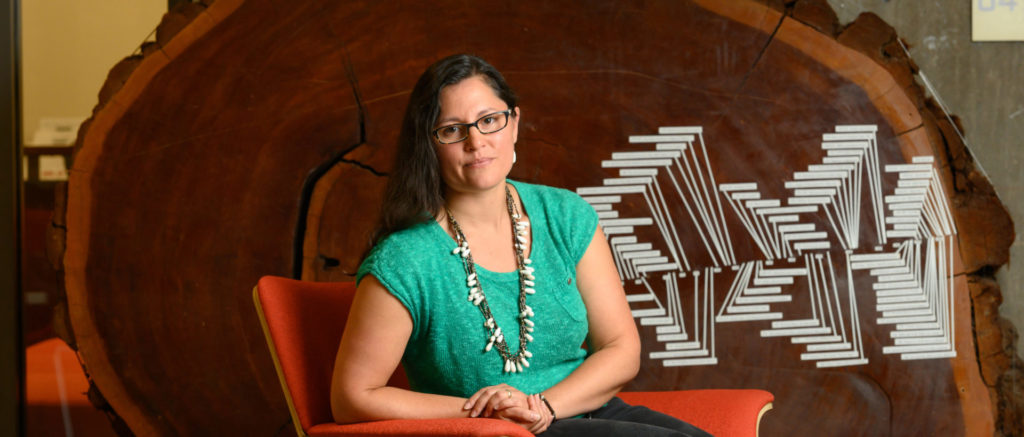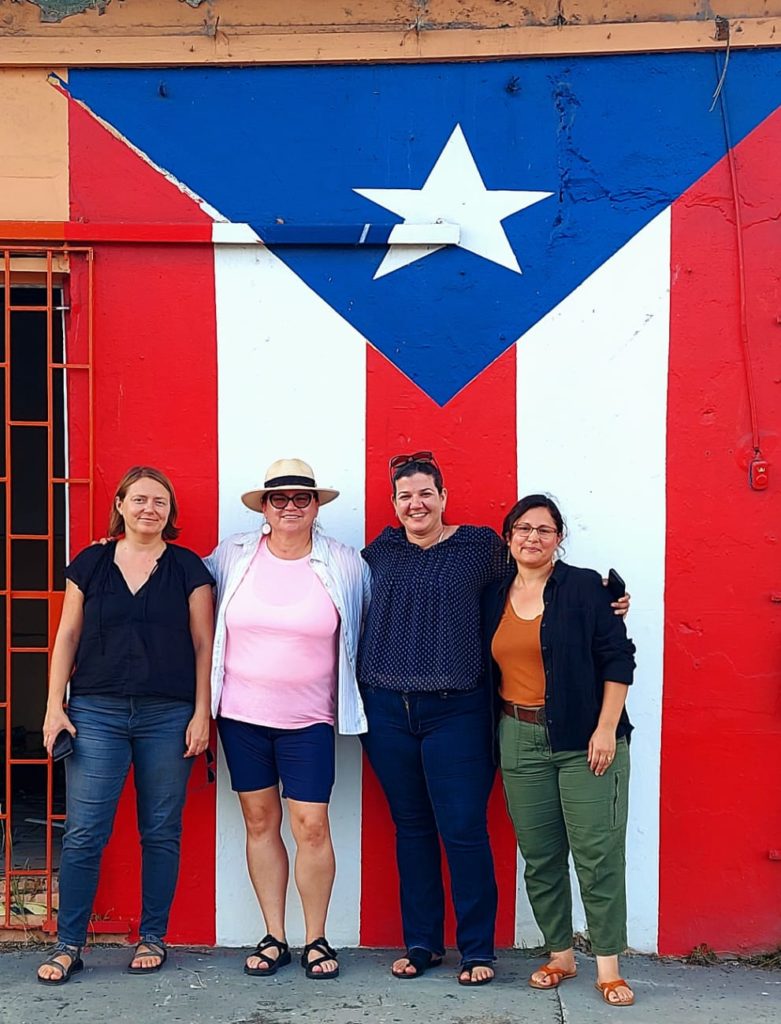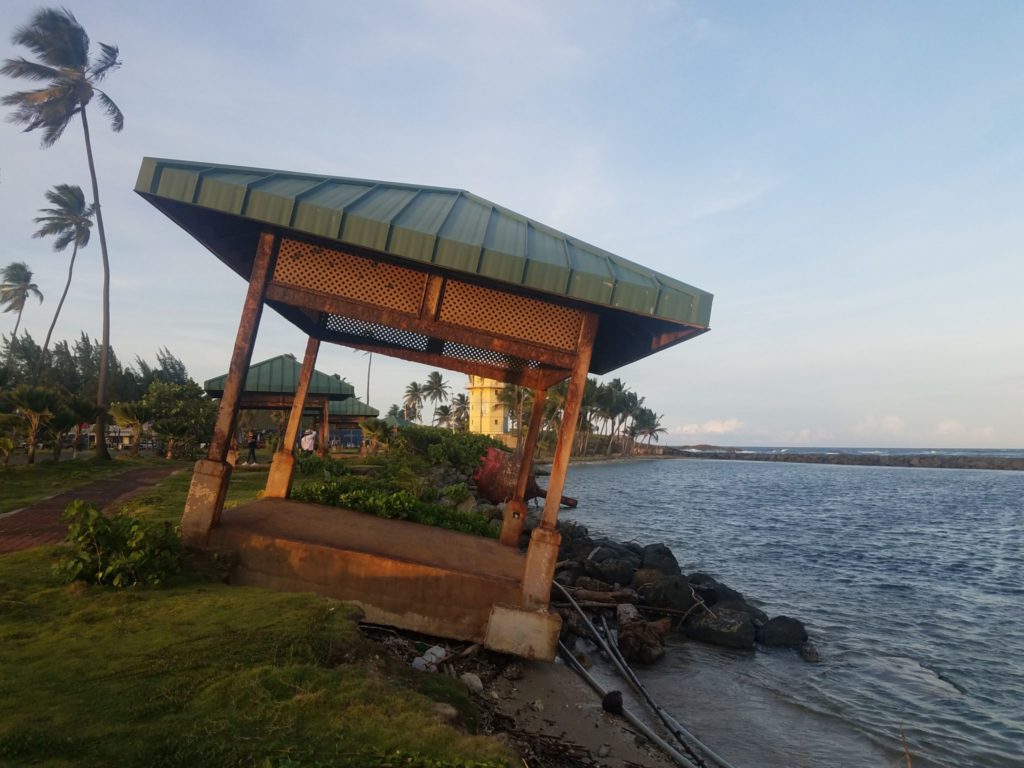
A new research collaborative pairs Indigenous knowledges and earth science research to improve climate resilience in coastal communities most affected by severe climate hazards.
Dominique David-Chavez, assistant professor of Indigenous Natural Resource Stewardship in the Forest and Rangeland Stewardship Department and director of the Indigenous Land and Data Stewards laboratory at Colorado State University, is working with local researchers in Borikén (Puerto Rico) coastal communities to support their community-based climate research as part of a five-year $20 million grant from the National Science Foundation.
The grant, awarded to Haskell Indian Nations University in Lawrence, Kansas, is the largest research award ever granted by the NSF to a tribal college or university.
The Large Scale CoPe: Rising Voices, Changing Coasts: The National Indigenous and Earth Sciences Convergence Hub will have Indigenous knowledge-holders and university-trained scientists working together to address the impacts of a changing climate on their coastal communities.
In addition to David-Chavez’s work in Puerto Rico (Caribbean Islands), the hub’s place-based research also includes Alaska (Arctic), Louisiana (Gulf of Mexico), and Hawai‘i (Pacific Islands).

Implementing Indigenous knowledge systems
David-Chavez will apply her experience as a multi-cultural Caribbean Indigenous (Arawak Taíno) research scientist, her expertise in community-based climate research in the Caribbean Islands, and her experience in Indigenous research and data governance to inform her role.
As someone who has focused her career on restoring pathways for knowledge with the original stewards of Indigenous knowledge systems and lands, she will facilitate research designed with a focus on understanding and collaboration among Indigenous community members, including Indigenous scientists, in Borikén and across the country, with other climate researchers.
Leading the hub is The Rising Voices Center for Indigenous and Earth Sciences, established by the NSF-sponsored National Center for Atmospheric Research. The group selected David-Chavez to lead the entire hub’s ethics and Indigenous data sovereignty working group. Creating a data sovereignty framework prioritizes understanding the laws, values, and principles that govern the data researchers use, as well as responsibilities to communities who steward and apply that data.
David-Chavez said it is the Indigenous people that live in coastal regions that understand the climate change effects that are occurring where they live.
“With the ecological changes, people who rely on the land like fisherfolk, farmers, and people who harvest for their homes or for medicines, are paying remarkably close attention to the changes that are occurring,” David-Chavez said.
The hub will combine Indigenous knowledges, along with modeling capabilities, archeological records, geographic information system techniques, socio-economic analysis, and hazards research.
The findings will enhance a fundamental understanding of the interconnected physical, cultural, social, and economic processes that result in coastal hazards and climate resilience opportunities, and increase the accuracy, relevance, and usability of model predictions for future planning and decision-making.

A focus on relationship-building
David-Chavez says it is rare in academia to see translating across different knowledge systems, such as that of a high-level scientific modeler with the complex knowledge base held by an Indigenous farmer.
“It is just something that you really haven’t seen much in academia and research,” David-Chavez said, “But there is so much potential because the scientific tools researchers are developing, they want them to be useful to communities and to have purpose.”
By bringing Indigenous knowledge holders in at the beginning stage of refining data models, she says the hub plans to improve how models can be applied in their respective communities, but that it also takes time and effort to establish trusting relationships.
The hub aims to provide an example of how people holding different knowledge systems can value Indigenous ways of knowing to strengthen science and relationships.
“We need to address the exclusion of marginalized communities in the sciences and the deficit that we recognize from that exclusion,” David-Chavez said, “This means a shift from putting Indigenous and marginalized people in tokenizing roles on research teams to instead recognizing the value of those communities hosting and genuinely leading an effort.”
Off to a strong start
David-Chavez felt that a kick-off event at Haskell Indian Nations University in September provided a promising foundation for the project. Collaborators came together to share meals and listen to elders, allowing Indigenous knowledges to guide the effort from the beginning.
“A lot of our conversation was about ‘How do we shift from transactional knowledge sharing in academia to relational ways of working together?’” David-Chavez said. “There is a whole team of people that are just ready to do this work in a way that I have never witnessed before. Among the colonially trained scientists that have not had as much exposure to this, I’m seeing them engage respectfully and humbly.”
The kickoff event in September allowed David-Chavez to connect with some of the Boricua (Puerto Rican) scientists and researchers with whom she has been excited to work.
In October, she visited Borikén to connect more with researchers there, see their work in action, and better understand how they will collaborate.
This included visiting and listening with Indigenous and local elders who have worked as community partners with researchers involved in the hub. For example, local volunteers have stepped into land stewardship roles as community scientists, collecting data on shorelines that will inform sand dune and vegetation restoration to slow down erosion in the DUNAS project.
“It feels very hopeful to learn about the strengths that we have that we can bring together for this collective purpose. It feels like the best kind of science I can possibly be doing– working in partnership with incredible communities.”
For more about the hub, click here.
Along with community partners in the four initial regions, the hub includes partnerships with Haskell; Indigenous organizations, such as the Indigenous Peoples Climate Change Working Group; and internationally known research organizations, including the National Center for Atmospheric Research (NCAR).
